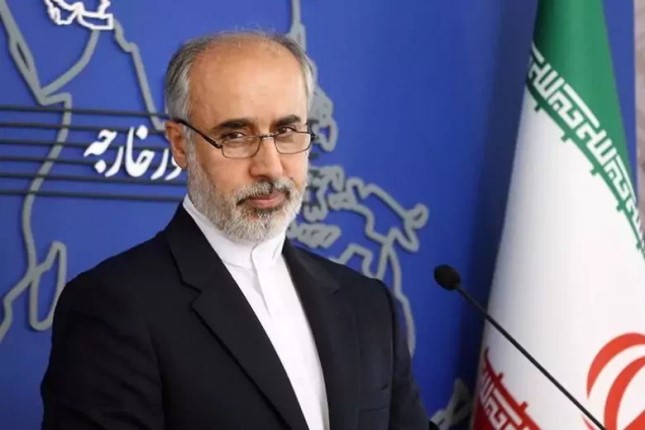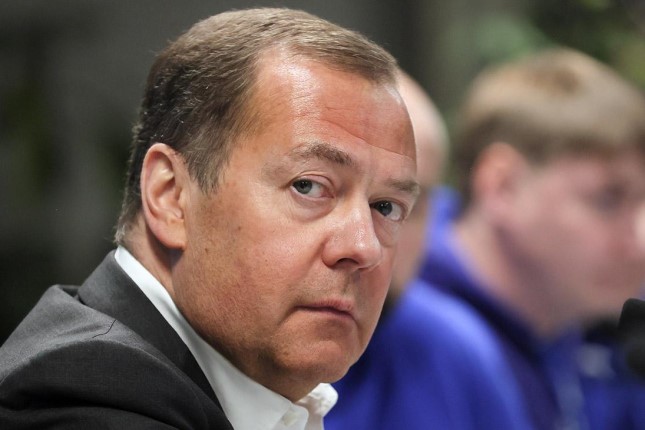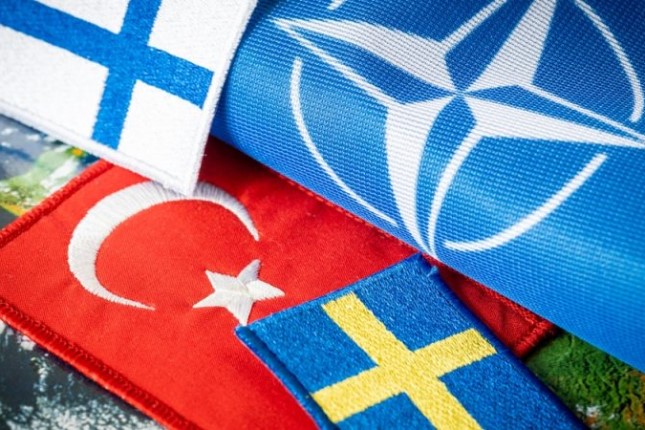According to the Polish Electoral Commission, the right-wing nationalist Law and Justice (PiS) party, which has been in power for eight years, remains the strongest force with 36 percent of the vote, despite losing ground. However, it lacks a coalition partner needed for a majority. Even together with the fascist Konfederacja (7.1 percent), it would only control a projected 211 out of 460 seats in the Sejm, the first chamber of the Polish parliament.
On the other hand, the Citizens Platform (PO) led by former European Union (EU) Council President Donald Tusk, together with the social democratic Lewica (Left) and the conservative party alliance Trzecia Droga (Third Way), would have a majority with 249 seats. The opposition therefore spoke of a “victory of democracy” and Tusk of the “end of PiS rule.” “We removed them from power,” he cheered.
The official final result is only expected to be announced Tuesday.
The election victory of the opposition is the result of high voter turnout, which at 74 percent was higher than ever before in the Third Republic. Long lines formed in front of polling stations late into the night, and the number of Poles living abroad who registered to vote in embassies or consulates also reached a new record of 600,000.
Although PiS lost about 8 percent of the vote, it gained voters in absolute numbers. It was “not defeated, but only overruled,” as one comment put it. Above all, the opposition was able to mobilise voters who protested en masse in recent months against the attacks on democratic rights and the ongoing social crisis.
In the eight years of its rule, PiS has brought large parts of the media and the judiciary under its control, filled key positions with hand-picked people in state-owned companies such as the oil company Orlen and in the army leadership, eliminated the right to abortion, forced education and culture to take an ultranationalist course and strengthened anti-Semitic and fascist forces.
Against this background, the election result is an expression of the widespread rejection of the reactionary policies of the PiS. However, the election winners can in no way live up to the expectations associated with the rejection of the PiS.
Tusk himself was Polish Prime Minister from 2007 to 2014 and President of the European Council from 2014 to 2019. He was therefore described by the PiS, which campaigned against Germany and the EU, as a stooge of Brussels and Berlin. His PO is a member of the conservative European People’s Party (EPP), which Tusk chaired from 2019 to 2022. The Citizens Platform, which had Tusk as its lead candidate in the election, includes three other right-wing parties: among them the peasant party Agrounia and the Green Party.
On social issues, the liberal Tusk is clearly to the right of the PiS, which gained support among poorer sections of the rural population mainly by increasing child benefit and pensions. In the Ukraine war, Tusk’s policy is no different from that of the PiS. Both fully support NATO’s proxy war against Russia.
However, PiS clashed with the Ukrainian government during the election campaign for nationalist reasons. Large areas of today’s western Ukraine used to belong to Poland, and the Organisation of Ukrainian Nationalists of Nazi collaborator Stepan Bandera, who is revered as a hero in Ukraine, was responsible for the deaths of tens of thousands of Poles. At the same time, German imperialism is using the Ukraine war to become the leading military power on the continent, which has met with opposition from the PiS. For his part, Tusk speaks for the wing of the Polish bourgeoisie that prefers a closer alliance with Berlin and Brussels.
Tusk even sought to outdo the PiS from the right with agitation against refugees from Africa and the Middle East, which was a core issue in the PIS’s election campaign.
The Trzecia Droga alliance, which Tusk needs for a government majority, consists mainly of the conservative green party Polska 2050 and the right-wing conservative Peasant Party PSL. Many of its leaders were formerly coalition partners of PiS. The Third Way is currently on 14 percent of the vote.
Lewica (8.5 percent) was cobbled together from the shards of various post-Stalinist and social-democratic parties that dominated Polish politics around the turn of the millennium under President Aleksander Kwaśniewski and have completely discredited themselves in the interest of capital due to their right-wing policies. At this election, they suffered the second-largest losses after the PiS.
Despite the clear electoral success of the opposition parties, it is by no means certain that there will actually be a change of government. On election night, commentators speculated about how closed the three opposition electoral lists were in their desire to replace the PiS.
PiS will do everything it can to divide and lure the opposition. PiS leader Jaroslaw Kaczyński threatened on election night: “We have days of struggle ahead of us, tensions of various kinds, but the final will be our victory and above all Poland’s victory.” He added: “Whatever the distribution of votes, we will win!”
PiS has considerable power to sabotage the formation of a new government. President Andrzej Duda, who belongs to the PiS camp and whose term of office runs until 2025, has a free hand in whom he entrusts with the formation of a government. If he exhausts all the possibilities of the constitution, the opposition can form a new government in mid-December at the earliest—if it still holds together.
Even non-constitutional means (the Supreme Court is firmly in the hands of the PiS) and a possible coup, as Donald Trump attempted in the US, should not be ruled out. The nationalist WOT militia created by the PiS in 2016 could serve as a base of support for this.
Earlier this year, Jaroslav Kurski, deputy editor-in-chief of Gazetta Wyborcza, warned, “There is a war going on beyond our border, and PiS will not hesitate to take extraordinary measures to maintain its power.” What was Kurski thinking at the time? An authoritarian presidential dictatorship? The intervention of the Polish army in Ukraine, which has already been threatened several times, and the imposition of martial law at home?
Law professor Wojciech Sadurski also warned shortly before the election in the Wyborzcza that Kaczyński, like Donald Trump and Jair Bolsonaro, would refuse to recognize the validity of the elections. He had his “doubts” that the Polish institutions would thwart such a coup.
The Frankfurter Allgemeine Zeitung, the mouthpiece of the Frankfurt Stock Exchange, celebrated Tusk’s election success as “good news for the European Union” but is also concerned about whether the “change of direction can really be implemented quickly.”
“In the EU, one should not expect,” warns the F.A.Z., “that Poland will very quickly become a reliable partner again. On the contrary, there is a great danger that the opposite will be the case: The largest EU member in East Central Europe, whose importance for supporting Ukraine can hardly be overestimated, could initially enter a dangerous phase of political instability.”
All those in Poland who elected Tusk and his allies to get rid of the reactionary PiS should be warned. Tusk, the man of European and Polish capital, will do everything to prevent such a “phase of political instability” and will come to terms with the PiS.
Source: World Socialist Web Site.
































